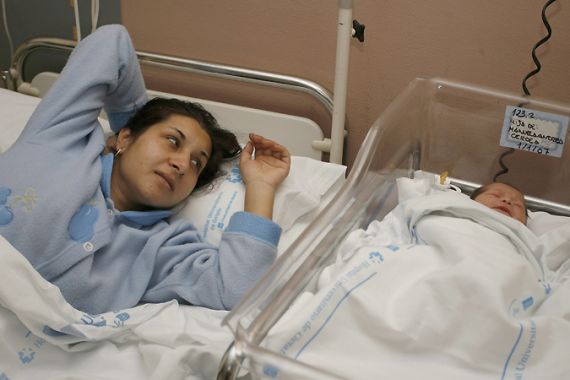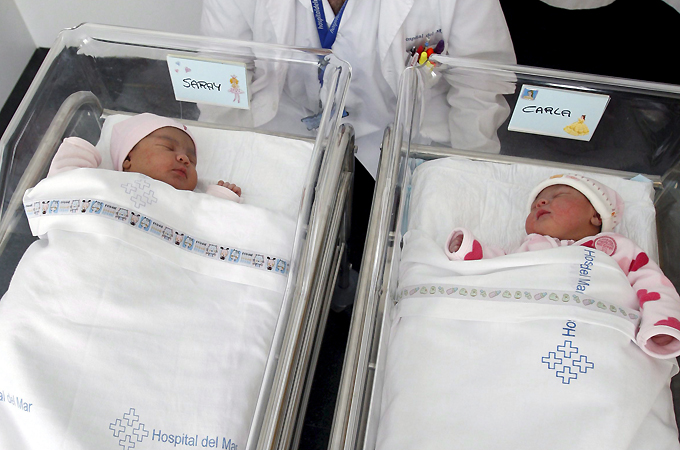Spanish women force delivery
Ahead of a looming deadline on financial aid, mothers-to-be are trying to bring their deliveries forward.

 |
| Mothers-to-be are trying to beat the deadline for last ‘baby cheques,’ as the policy is sacrified to austerity cuts [EPA] |
Expectant mothers in Spain have until midnight on New Year’s Eve to give birth, if they are to receive a cheque of $3,300 from the government.
Spain’s ‘baby cheques,’ a government scheme that was introduced in July 2007 to help encourage more families to have children, are being cut from January 1 as part of the national austerity drive.
Pregnant women are trying to bring their deliveries forward ahead of the cut-off date, according to El Pais, a Spanish daily newspaper.
“What we’re seeing in the public sector is that women who are due to give birth in the first fortnight of January are coming in and saying they are spotting blood or that their waters have broken,” a midwife working in a Seville hospital told El Pais.
“They don’t dare say so openly but we know they want to bring the due date forward.”
Doctors also told the paper they were seeing a spike in the number of women requesting that their babies be delivered by caesarean.
Prime minister Jose Luis Rodriguez Zapatero’s socialist government introduced the reform in a surprise move last year.
“In order to continue progressing Spain needs more families with more children. And families need more aid to have more babies and more resources for their upbringing,” Zapatero told parliament at the time.
After seeing a dramatic population boom in the 1960s and 1970s, the Spanish birth rate stalled in the 1980s. By 2000 it had fallen to an average of 1.07 births per woman, the lowest figure in the world.
Population growth in the past 10 years is mostly due to immigration, rather than a rising birth rate.
In 2009, the number of births fell by five per cent, the first decline in the past decade.
For some commentators, the most recent drop is a consequence of the economic crisis, and notably rising unemployment.
Demographers have long argued that a lack of family planning has made caring for children harder in Spain than in other, more generous, European countries.
The ‘baby cheque’ policy was intended to provide of the kind of family support that is common in many of Spain’s northern neighbours.
Others blame ‘conservative’ cultural values that continue to place the burden of child care overwhelmingly on women.